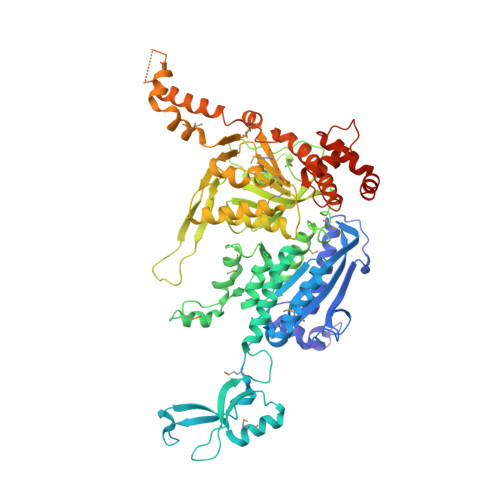Molecular Basis for the Inhibition of the Carboxyltransferase Domain of Acetyl-Coenzyme-A Carboxylase by Haloxyfop and Diclofop
Zhang, H., Tweel, B., Tong, L.(2004) Proc Natl Acad Sci U S A 101: 5910
- PubMed: 15079078
- DOI: https://doi.org/10.1073/pnas.0400891101
- Primary Citation of Related Structures:
1UYR, 1UYS, 1UYT, 1UYV - PubMed Abstract:
Acetyl-CoA carboxylases (ACCs) are crucial for the metabolism of fatty acids, making these enzymes important targets for the development of therapeutics against obesity, diabetes, and other diseases. The carboxyltransferase (CT) domain of ACC is the site of action of commercial herbicides, such as haloxyfop, diclofop, and sethoxydim. We have determined the crystal structures at up to 2.5-A resolution of the CT domain of yeast ACC in complex with the herbicide haloxyfop or diclofop. The inhibitors are bound in the active site, at the interface of the dimer of the CT domain. Unexpectedly, inhibitor binding requires large conformational changes for several residues in this interface, which create a highly conserved hydrophobic pocket that extends deeply into the core of the dimer. Two residues that affect herbicide sensitivity are located in this binding site, and mutation of these residues disrupts the structure of the domain. Other residues in the binding site are strictly conserved among the CT domains.
- Department of Biological Sciences, Columbia University, New York, NY 10027, USA.
Organizational Affiliation:


















